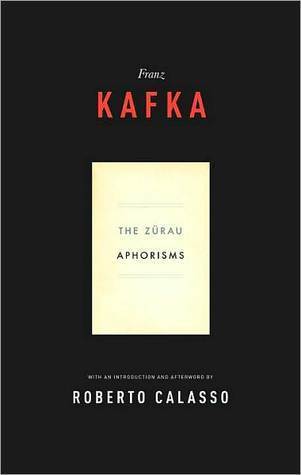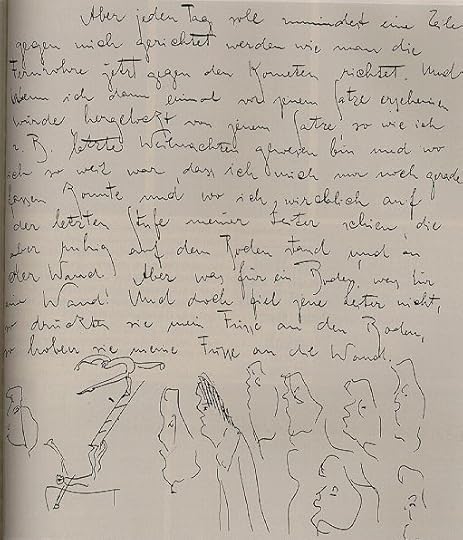What do you think?
Rate this book


162 pages, Kindle Edition
First published January 1, 1931


A. is terribly puffed up, he considers himself magnetically attracting to himself an ever greater array of temptations, from quarters with which he was previously wholly unacquainted. The true explanation for his condition, however, is that a great devil has taken up residence within him, and an endless stream of smaller devils and deviltons are coming to offer the great one their services. [10]It is that last aphorism -- also the last in the collection -- that means the most to me.
I have never been here before: my breath comes differently, the sun is outshone by a star beside it. [17]
From the true opponent, a limitless courage flows into you. [23]
There is no possessing, only an existing, only an existing that yearns for its final breath, for asphyxiation. [35]
The road is endless, there are no shortcuts and no detours, and yet everyone brings to it his own childish haste. "You must walk this ell of ground, too, you won't be spared it." [39a]
A man cannot live without a steady faith in something indestructible within him, though both the faith and the indestructible thing may remain permanently concealed from him. One of the forms of this concealment is the belief in a personal god. [50]
It isn't necessary that you leave home. Sit at your desk and listen. Don't even listen, just wait. Don't wait, be still and alone. The whole world will offer itself to you to be unmasked, it can do no other, it will writhe before you in ecstasy. [109]